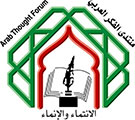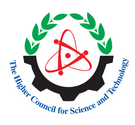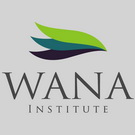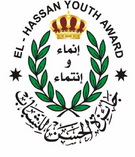Institutions
HRH Prince El Hassan bin Talal has initiated founded and is actively involved in a number of Jordanian and international institutions.
These include the following:
|
|
| |
.png) |
The Royal Scientific Society (RSS) was born out of the great heart and spirit of His Majesty the Late King Hussein and HRH Prince Hassan in 1970, the Royal Scientific Society has, since day one, aimed high to be the local and regional reference point of knowledge for science and technology using modern engineering research as a base to power economic development and social progress. The RSS is the largest applied research institution, consultancy, and technical support service provider in Jordan and is a regional leader in the fields of science & technology.
|
|
|
| |
 |
The Arab Thought Forum (ATF) is an independent, intellectual, pan-Arab nongovernmental organisation established in 1981 by HRH Prince El Hassan bin Talal, together with twenty-five leading Arab thinkers, decision-makers and development experts. ATF mission is to study the current situation in the Arab World and its problems, as well as conducting studies and projects that would lead to practical solutions and viable options on issues such as unity, security, social and economic development, good governance, freedom, human dignity, human security, women empowerment, youth, intercultural and intellectual dialogue.
|
|
|
| |
 |
The Higher Council for Science and Technology (HCST) was established in 1987 with the objective of building a national science and technology base to contribute to the achievement of development objectives through increasing awareness of the significance of scientific research and development, granting the necessary funding and directing scientific and research activities, within national priorities, in harmony with development orientations. The Council was also entrusted with the establishment of specialised centres, as the need arose, while also representing the Kingdom in scientific and technological activities at regional and international levels..
|
|
|
| |
 |
The Royal Institute for Inter-Faith Studies (RIIFS) was established in 1994 in Amman, Jordan, under the patronage of His Royal Highness Prince El Hassan bin Talal. RIIFS is a non-profit, non-governmental organization that provides a venue for the interdisciplinary study of intercultural and interreligious issues with the aim of defusing tensions and promoting peace, regionally and globally.
|
|
|
| |
 |
The West-Asia North Africa Institute (WANA), established by His Royal Highness in 2009, is a not-for-profit policy think tank. The WANA Institute promotes a transition to evidence-based policy and programming, with a particular focus on strengthening the role of civil society as a key player in regional development. The WANA Institute works to empower key stakeholders with knowledge, tools and evidence in three areas: social justice, green economy and human security. It does this by undertaking progressive, interdisciplinary research; convening a multi-stakeholder dialogue platform made up of key change makers; supporting stakeholders through a regional knowledge network and communities of practice; and by building the capacity of stakeholders to transform knowledge into policy and programs.
|
|
|
| |
 |
El Hassan Youth Award Scheme was started in Jordan in 1984 as a pilot scheme in the Amman Baccalaureate School. The Scheme is not an organization, it is a program of practical, cultural, professional and adventurous activities designed to be used by all agencies having a concern for the development of young people. El Hassan Youth Award provides a big opportunity for Jordanian youth between the ages 14-25 to enrol in a self-challenging, educational, and non-academic program. The philosophy of the Scheme incorporates the basic set of human values long sought by every society; freedom, justice, co-operation, participation, love, affiliation to the country and the sense of social responsibility. The most important strategy adopted by the Scheme lies in present opportunity and challenge to the participant in order to achieve the maximum for themselves and their society, based on participation rather than competition.
|
Click on the links above to find out more.